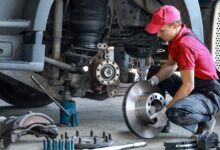Should I Buy a Used Car or a New Car? Making an Informed Decision

When it comes to purchasing a car, one of the first decisions that you will need to make is whether to buy a used car or a new car. Both options have their own set of advantages and disadvantages, and it can be a tough choice to make. Let’s list the factors you should consider when deciding between buying a used car or a new car. Ultimately, you’ll have the information you need to make an informed decision that fits your needs and budget.

Contents
Financial Considerations
Price
One of the most significant factors that can influence your decision is the price of the car. Used cars are generally more affordable than new cars, as they have already depreciated in value. This means that you can often get more car for your money when buying used. On the other hand, new cars come with a higher price tag due to their brand-new condition and the latest features they offer.
Depreciation
Depreciation is another financial aspect to consider. New cars tend to lose value rapidly during the first few years of ownership, whereas used cars have already experienced most of their depreciation. If you buy a new car, you can expect it to lose a significant portion of its value as soon as you drive it off the lot. However, if you opt for a used car, you can potentially minimize the impact of depreciation.
Financing Options
Financing options can also vary depending on whether you choose to buy a new car or a used car. New cars often come with attractive financing deals from manufacturers, such as low-interest rates or cashback offers. On the other hand, used cars may require higher interest rates or shorter loan terms. It is essential to consider your financial situation and evaluate the financing options available for both new and used cars before making a decision.
See more: Best Family Car Models to Buy in 2024: A Comprehensive Guide
Reliability and Maintenance
Reliability
Reliability is a critical factor when purchasing a car, as nobody wants to end up with a vehicle that constantly needs repairs. New cars generally come with warranties that cover repairs for a specific period or mileage. This provides peace of mind and reduces the financial burden of unexpected repairs. However, it’s worth noting that modern cars, whether new or used, are generally more reliable than older models.
Maintenance
Maintenance is another aspect to consider. New cars typically require less maintenance in the early years of ownership since all components are new and less prone to failure. Used cars, on the other hand, may have higher maintenance requirements as they have already been driven for some time. It’s important to consider the potential costs of maintenance and repair when deciding between a new car and a used car.
Certified Pre-Owned (CPO) Option
If you’re concerned about reliability but still want the benefits of purchasing a used car, consider looking into certified pre-owned (CPO) vehicles. These are used cars that have undergone rigorous inspections and meet specific manufacturer criteria. CPO cars often come with extended warranties, providing additional peace of mind. While CPO cars may be slightly more expensive than regular used cars, they offer the advantage of being thoroughly inspected and backed by the manufacturer.
Technology and Features
Latest Technology
If having the latest technology and features is essential to you, then buying a new car may be the way to go. New cars often come equipped with cutting-edge technology, including advanced safety features, infotainment systems, and connectivity options. However, keep in mind that technology evolves rapidly, so what’s new today may become outdated in just a few years.
Value for Money
While new cars boast the latest technology, they also come at a higher price. If you’re on a budget but still want some modern features, buying a used car with slightly older technology can be a more cost-effective choice. Many used cars still offer desirable features such as Bluetooth connectivity, backup cameras, and advanced safety features that were once considered high-end options.
Personal Preference
Ultimately, the decision between buying a new car or a used car based on technology and features comes down to personal preference. Consider your priorities and what features are must-haves for you in a vehicle. If having the latest technology is non-negotiable, then a new car may be worth the investment. However, if you’re content with slightly older features and want to save money, a used car can still provide excellent value.
Insurance Costs
Insurance Premiums
Insurance costs should also be taken into account when deciding between a new car and a used car. Generally, new cars tend to have higher insurance premiums due to their higher value and replacement costs in case of accidents or theft. On the other hand, used cars often have lower insurance premiums since they have lower values and are less expensive to repair or replace.
Financing Requirements
It’s worth noting that if you finance your vehicle, lenders typically require comprehensive insurance coverage for both new and used cars until the loan is fully paid off. This requirement can increase your insurance costs for both types of vehicles. However, since new cars often have higher loan amounts, insurance costs may be more substantial compared to financing a used car.
Consider Your Budget
When making your decision, consider your budget not only for purchasing the vehicle but also for ongoing costs such as insurance premiums. It’s wise to obtain insurance quotes for both new and used cars you are considering to get an accurate idea of how insurance costs will affect your overall expenses.
Environmental Impact
Fuel Efficiency
If reducing your carbon footprint is important to you, then fuel efficiency should be a factor in your decision-making process. Newer models often come with improved fuel efficiency due to advancements in engine technology and lightweight materials. This means that buying a new car may result in lower fuel consumption and fewer emissions compared to buying an older model.
Manufacturing Impact
While new cars may be more fuel-efficient during operation, it’s essential to consider the environmental impact of manufacturing them. Producing new cars requires resources such as raw materials, energy, and water, which contribute to carbon emissions and ecological footprints. Opting for a used car reduces the demand for manufacturing new vehicles and helps extend their lifespan.
Consider Hybrid or Electric Options
If reducing your environmental impact is a priority, consider exploring hybrid or electric vehicles (EVs). These vehicles offer even greater fuel efficiency and significantly reduce greenhouse gas emissions compared to traditional gasoline-powered cars. While EVs may have higher upfront costs, there are often incentives available such as tax credits or rebates that can offset the initial investment.
Should I Buy a Used Car or a New Car?
Choosing between buying a used car or a new car involves considering various factors such as financial considerations, reliability and maintenance needs, technology and features preferences, insurance costs, and environmental impact. By evaluating these factors based on your specific needs and priorities, you can make an informed decision that aligns with your budget and values. Whether you choose to buy a used car or a new car ultimately depends on what matters most to you – affordability, peace of mind, advanced features, or environmental consciousness.
See more at: Car Care Vip





















